The last hours - the general election conclusions
- Published
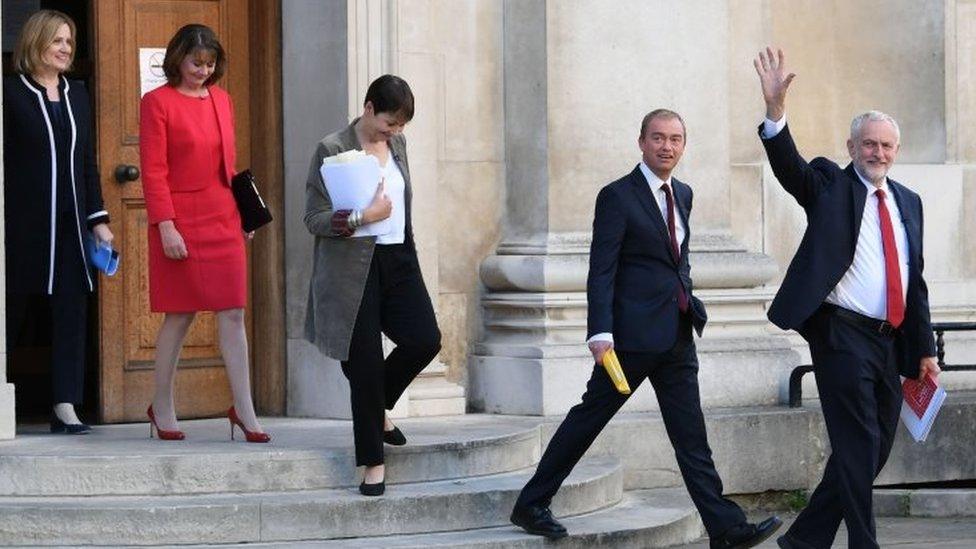
Caveat, caveat, caveat, and in case you haven't realised the point I'm trying to make yet, here is another caveat. Elections matter because they determine all our futures based on the decisions made by millions of people in the privacy of the polling booth.
The results are not based on what the pollsters say, nor entirely on what happens in the rough and tumble of election campaigns, nor what any journalist or pundit says. Nor is the outcome in a time of political volatility predictable in any traditional sense.
So, anyone now making guesses about the final outcome of the election is doing just that, guessing, even if those guesses are of the most informed kind.
With those caveats in mind though, we have spent the last few weeks travelling the country with political leaders, talking to voters, and also talking to dozens of candidates who have been on the doorstep trying to secure the vote for their parties. And it is worth exploring the broad conclusions that many of them share.
The first point worth making is that generally, most of them share the same view of the big picture. Irrespective of the Tories' dispiriting campaign, irrespective of the very obvious enthusiasm shown by many thousands of Jeremy Corbyn's supporters, experienced campaigners across the political spectrum believe the Conservatives are almost inevitably going to be the largest party.
Even the inner core of Mr Corbyn's supporters don't really believe the overall outcome is very likely to be different. And the London Bridge attacks make it difficult for any of the political parties to shift the debate beyond security or Brexit, or build new momentum in these closing hours.
One cabinet minister did suggest privately, "it is possible" that they might not end up being the largest overall party, but "when you get down to Brexit it's a yes, and it's all down to Theresa May".
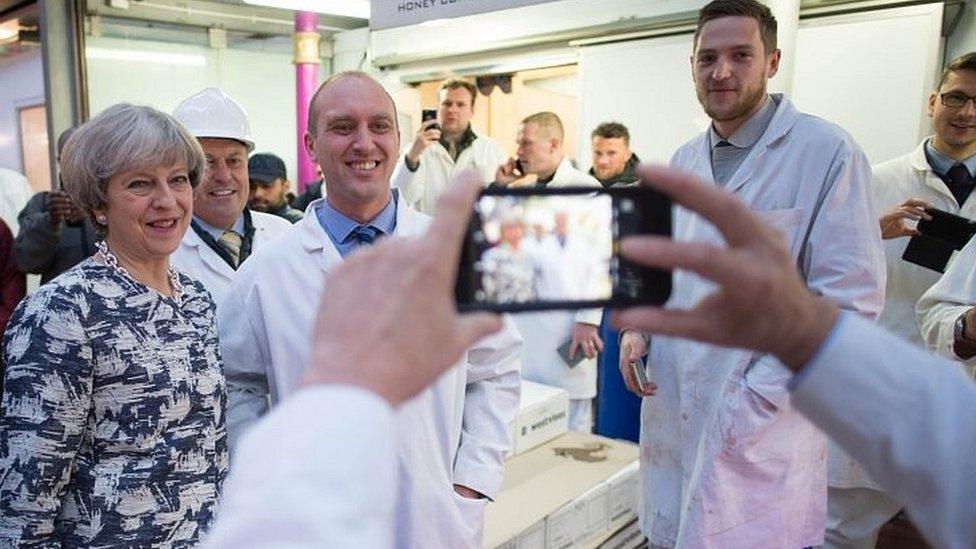
Without question though, there has been a hardening of what had felt like a super soft Labour vote. The local election results suggested that it wasn't just UKIP voters likely to make the switch to the Conservatives, but normal Labour voters who were willing to make the jump straight across.
Again and again, whether in Wales, or the Midlands, or the North East, we heard voters say "I'm normally Labour, but…" contemplating voting Conservative for the first time. That was certainly partly down to the public perception of Jeremy Corbyn.
Labour campaigners reported a vitriolic reaction to Jeremy Corbyn in many places. One candidate texted in shock to say, "you can't overestimate how unpopular he is on the doorsteps".
Labour, Tory, SNP, or Lib Dem we heard this time and again. Whatever the picture the national polls suggest, some Labour candidates still believe their party could be looking at a dreadful set of results with the party crashing to well below 200 seats.
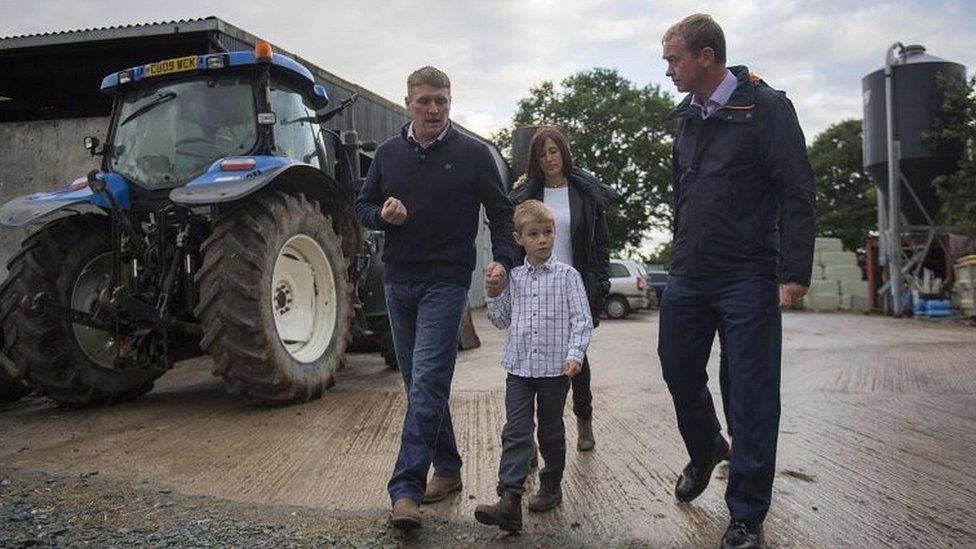
Lib Dem leader Tim Farron campaigning in Wales
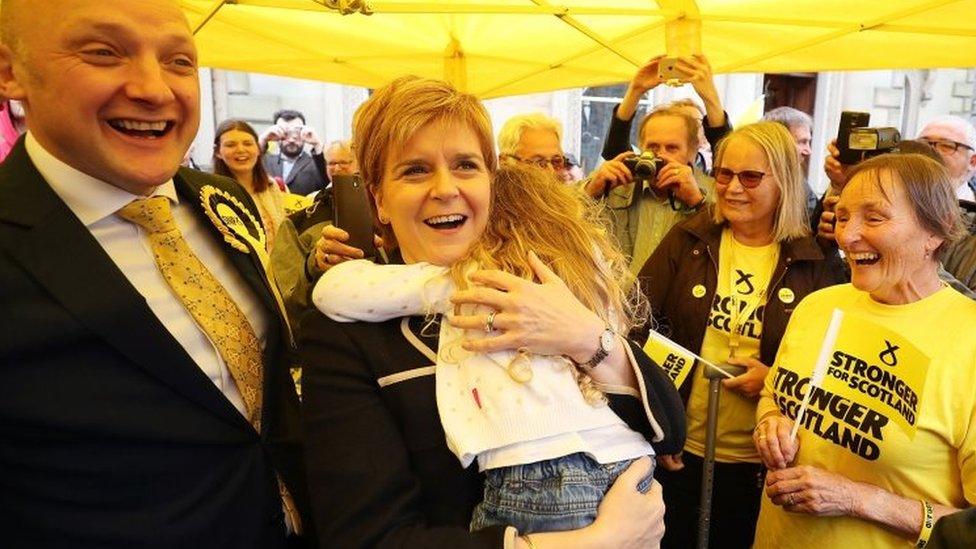
SNP leader Nicola Sturgeon has been touring Scotland ahead of Thursday
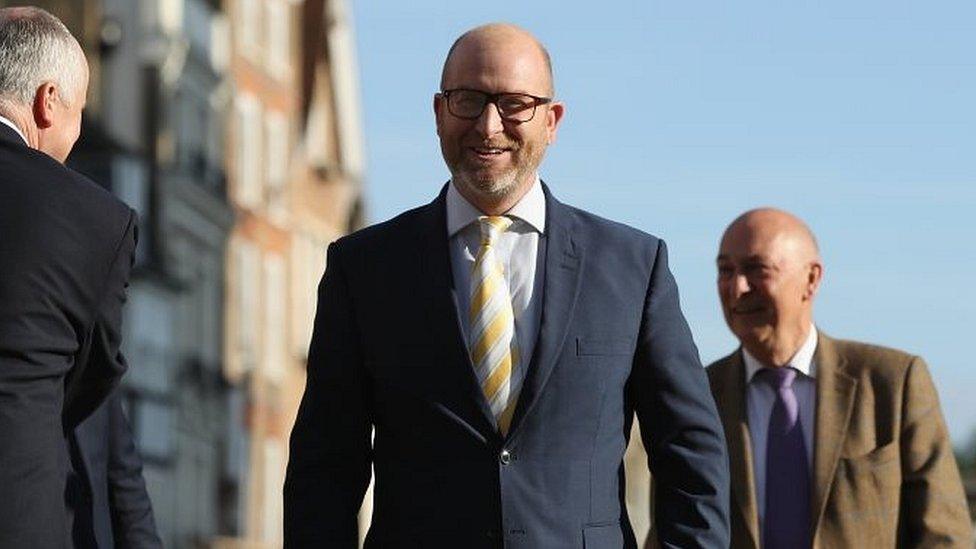
Will UKIP voters from 2015 switch to other parties?
Most we've spoken to believe the party will go backwards, the question is by how much. There has been a hardening of the Labour vote since the opening days of this battle, but as one source puts it the party's view was "we started 90 seats behind". Another senior source says "the scale of the drop in our support feels bigger than the scale of the recent increase, while the Tory vote has grown and the Lib Dems have disappeared".
But one look at the thousands of rain soaked supporters in Gateshead, students climbing up trees to see the Labour leader over the crowds in Leeds, queues outside so many of the venues where he has appeared, tells you that he has massively enthused some voters, particularly students and the young.
Over the course of the campaign it's been Labour with most of the momentum, the more enthusiastic crowds, and the more radical agenda.
Nearly every private conversation with candidates reveals this too. There's been surprise in Tory ranks that the overall tone of the campaign has been a positive for Mr Corbyn, rather than the onslaught they expected and sought to promote with highly personalised attacks from the get go.
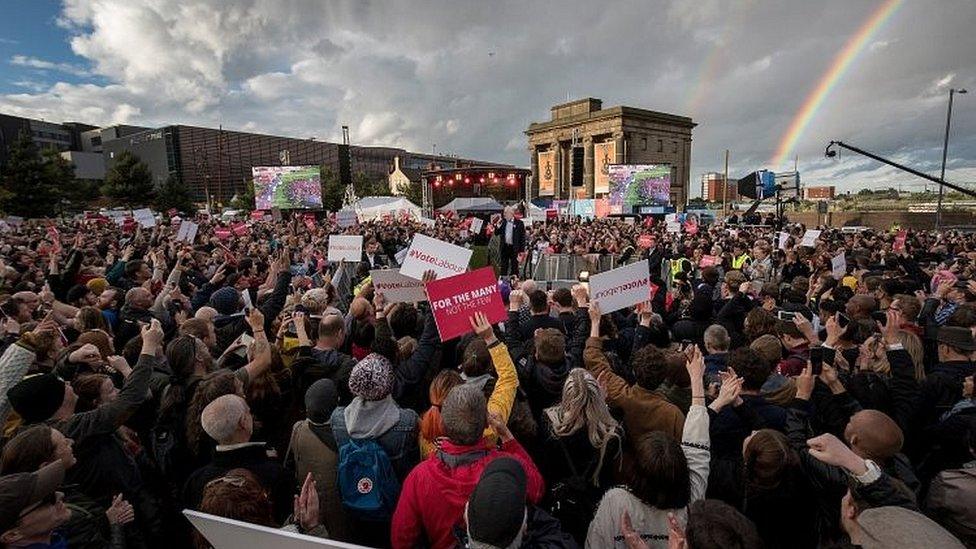
Jeremy Corbyn has been drawing large crowds
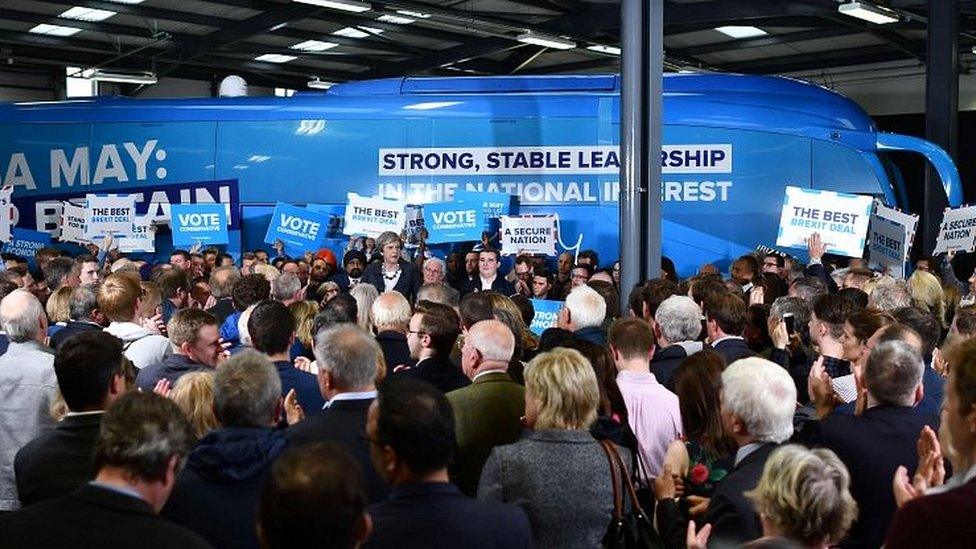
Theresa May campaigning in Slough, which is currently Labour
And for the large number of Labour doubters, there's been disbelief at how he has performed. For many of his supporters however, this is what they always believed could happen. When his policies got more exposure, and more people saw him in the context of a campaign, more and more voters would be drawn to his radical offer.
But excited crowds don't translate directly into election victories. In the Scottish referendum for example, it was those campaigning for independence who had the excitement, the energy, the visible drive, yet they lost by 10 points.
At this point in the General Election in 2015, it was Labour campaigners with hope in their eyes, Ed Miliband's team joking privately about giving out invites to Chequers. Yet the party went backwards.
What do the parties themselves really think is going on? Remember they have their own huge swathes of data gathered door-knock by door-knock that informs their decisions. The most basic of all - where it is worth turning up to campaign. Parties don't traditionally send their leaders to places where they think they have no chance of winning, or where they don't think they are in danger of losing. Essentially, leaders only go to seats that are in play.
So consider the pattern of where Mr Corbyn has been visiting - the huge crowds have often been in Labour-held seats. For perhaps the biggest clue in this election look at the trail of the leaders' visits themselves.
Jeremy Corbyn has been to 63 seats - 27 Labour including 20 safe seats, 34 Tory seats, 1 SNP and 1 Liberal Democrat. By contrast, Theresa May has visited 62 seats - 41 of them Labour, 15 Tory, 5 SNP and 1 Liberal Democrat. She has been to no safe Tory seat other than her own constituency.
The heavy hint from those choices tell you who is playing an attack game, and who is trying to defend their ground.
Indeed one source at the top of the Labour Party told me there are only two seats they believe that are seriously in contention as Labour gains. That is hardly the position of a party that really believes it is in the ascendance.
The party's ultimate vote share is a separate question. But in a first-past-the-post system, if Labour wants to inflict damage on the Tories they need to protect seats in the North and make gains in the Midlands. Beyond what the national polls suggest, there is not much convincing evidence that suggest that is what's going on. One senior source suggests Mr Corbyn has sewn up the "trendy left". But it's hard to identify how far his appeal has really stretched beyond that in the places where it counts.
Still, last night in Birmingham, we've witnessed what was probably one of the biggest political events in decades. Jeremy Corbyn speaking to a crowd in Birmingham, cheered again and again, watched on live screens by many more thousands of voters in five other cities around the country.
Just as when he won the leadership of the Labour Party, his candidacy, and his promises have excited voters for whom the standard political offer of recent years has come up woefully short. For Labour candidates who see this election and its expected result as an opportunity to end his control of the party that enthusiasm is a genie that may be extremely hard to wrangle back into the bottle.
Remember that, as with Mr Corbyn's election to the Labour leadership first time round, and the European referendum, we are living through times where traditional political rules are certainly frayed. And if young people defy expectation and turn out to vote in unprecedented numbers any result is possible.
One cabinet minister told me today that if the Tories don't win, the polls are "bonkers" and voters on the doorsteps have been "deceitful" when reporting, whether enthusiastically or grudgingly, that they will put their cross in their box.
Yet perhaps either way, the events of this campaign will be felt across the spectrum for years to come.